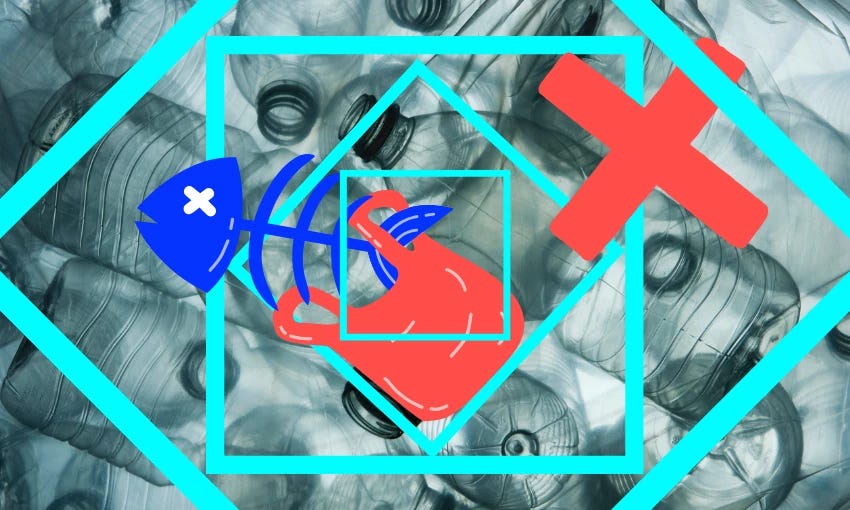Fireworks in scrutiny week as Health boss accused of 'cooking the books'
A Labour MP has been warned her comments could be defamatory.
Mōrena, and welcome to The Bulletin for Thursday, December 5.
In today’s edition: The government is slashing support for humanities and the social sciences, Meta is fighting scam ads in Australia but not in New Zealand, and Te Pāti Māori MP Hana-Rāwhiti Maipi-Clarke has been named one of the BBC’s most influential women for the year. But first, tough questions and tougher answers over Health NZ’s finances.
‘Tell that to the nurses’
Parliament’s “scrutiny week” has maintained its high drama level, with a tense six-hour grilling yesterday of Health NZ’s commissioner Lester Levy. As Stuff’s Bridie Witton reported, Levy’s claim that there had been “no cuts” to the health system attracted mocking remarks from opposition MPs, with Labour’s Ingrid Leary saying: “tell that to the nurses, tell the national public health service”. Levy responded: “I think there’s a line being drawn between reducing staff and a cut”. Newsroom Pro’s Jonathan Milne reported yesterday (paywalled) that Levy had backed down after attempting to retrospectively include $135 million of anticipated redundancies in the 2023/24 finances, even though the staff wouldn’t actually be laid off until now, the following financial year. It’s been reported that the auditor-general intervened and made changes to Health NZ’s draft financial statements.
Cooking the books?
Labour’s Ayesha Verrall accused Levy of “cooking the books” to make the deficit look worse in order to justify cuts to the health system. Levy said he resented that remark and asked for an apology. "The books are not good. There's serious under-performance, financial performance,” Levy acknowledged. 1News’ Benedict Collins reported Levy as saying the comments by Verrall “could be considered to be defamatory”, though the MP has stood by her remark. "I think the envelope is being pushed here on what legitimate treatment of the accounts are," Verrall said.
The true state of Health NZ’s books was revealed on Tuesday with a $722 million deficit for 2023-24. Chief executive Margie Apa, speaking to Morning Report, said the forecast deficit for the current financial year was $1.1 billion dollars – lower than the feared $1.7bn previously announced but still a sizeable hole. The health boss confirmed the bulk of its deficit was down to funding nursing staff. "We have a $797 million in personnel costs that are greater than budget. Now not all of that is nursing, we did recruit more in other areas as well,” she said. As a result, Health NZ has extended its cost-cutting drive by another year through until 2027 when it hopes to reach surplus.
The battle for beds
During the lengthy session, Levy did promise to reveal how he intended to reset the public health system, but wouldn’t put a timeframe on it, reported The Post’s Rachel Thomas. He expected the health agency to make a serious “dent” in waiting room times within two years. That will be a challenge. In the Herald today, Michael Morrah speaks with an emergency physician at Auckland Hospital who claims the lack of beds for patients is the worst it has ever been. “We know that there is potential preventable mortality if we get flow through our hospital system better,” said Peter Jones. The government wants to have 95% of patients either admitted to a ward, discharged, or transferred to another hospital within six hours of arriving at an emergency room. Jones said getting to 80% would be the “inflection point” – but that right now we are “nowhere near” meeting that.
‘Genuine stress’
As if enough attention wasn’t already on health sector, thousands of nurses also walked off the job in protest over pay and staffing issues earlier in the week. The Post has a good overview of the issues raised by those participating in the strike – everything from wards being overrun, a lack of free parking and cutbacks on food for patients. In an interview with the Pacific Media Network, former Te Whatu Ora chair Rob Campbell said there was “genuine distress” among healthcare professionals at the moment. “I know that the Pacific teams are all being restructured, yet again,” said Campbell. "They've had several goes at them, both in the head office and on the ground and so the wrong people are facing the stress and the difficulty of this.”
The future of The Spinoff depends on its audience
As many of you will have seen, we published an open letter last week outlining the financial situation we find ourselves in. Only 2% of our audience financially supports us. Doubling that number is our last, best shot at retaining the ability to carry on doing what we do. To those who have already supported, we thank you. If you can and haven't yet, please become a member or donate today.
Mixed response to social sciences funding cut
The government is making changes to a well known scientific research fund, reported RNZ, slashing any support for humanities and the social sciences. Judith Collins, the science, innovation and technology minister, said the Marsden Fund would only be available for work in areas such as physics, chemistry, maths and engineering as these made more of an impact on the economy. “We are focused on a system that supports growth, and a science sector that drives high-tech, high-productivity, high-value businesses and jobs,” said Collins. The Act Party was quick to celebrate the announcement, criticising previous grants that it claimed had prioritised “spirituality, activism and identity politics”.
But the move has upset some in the science community. Nicola Gaston, Co-Director, The MacDiarmid Institute, told the Science Media Centre she was “horrified” by the government’s decision. “I am absolutely disgusted by the way that the kind of science I, and my colleagues do… is being weaponised against our colleagues in the humanities and the social sciences.”
On the same day, reported Juha Saarinen at Interest, the “Catalyst Fund” – which aims for international collaboration for science – has been updated "to be laser focused on clear outcomes and priority research areas”.
Meta is fighting scam ads in Australia – but has ‘no plans’ to do so in NZ
The Spinoff’s Duncan Greive continues his deep dive into scam ads on social media, taking a look at the situation across the ditch. As he writes, Meta, the parent company of Facebook and Instagram, has announced it will finally begin verifying those advertising financial services in Australia. From February 2025, it will require a government ID and proof of licensing from such advertisers. The move has been welcomed by banks that often take on the brunt of the focus over scams, as Greive has previously looked at in an excellent Cover Story.
But Meta has no plans to roll out the same verification system in New Zealand. Labour’s commerce spokesperson Arena Williams said there was “no reason” why Meta’s standards in Australia couldn’t be applied here. “I don’t think that’s good enough from Meta,” she said.
Australia has banned social media for under 16s. And that's just the beginning
In an effort to get out of his doom spiral, Duncan Greive takes a tour across the Tasman on The Fold this week to see how our close neighbours are dealing with a similar set of challenges. From a social media ban, to local content quotas, to news bargaining to an activist competition authority, Australia is a global leader, while New Zealand is nowhere to be found.
Click and Collect
An interesting report in The Post today about whether or not an “apolitical” Wellington group is really as apolitical as it claims.
Following on from Tuesday’s Bulletin: A leading virologist says she will not be surprised if the Otago bird flu outbreak continues to spread to other farms.
Two high-profile presenters are leaving TVNZ as the broadcasters continues to make cutbacks.
New welfare sanctions could stop families paying rent, officials warn.
BusinessDesk has a comprehensive (paywalled) report ahead of details being released about new interisland ferries. An announcement is due December 11 – undoubtedly we’ll talk more about it then.
Concern grows over Air NZ's potential price hikes. Meanwhile, Auckland Council has sold its remaining shares in Auckland International Airport.
Te Pāti Māori MP Hana-Rāwhiti Maipi-Clarke has been named one of the BBC’s most influential women from around the world for 2024.
Shanti Mathias surveys a rubbish heap of recent headlines and stymied progress on the plastic problem. For The Spinoff Books Confessional, Margot and Rosa from Two Raw Sisters discuss beloved cookbooks and their other favourite reads. Jennifer Shields asks why public consultation is being opened for a review on gender-affirming care which affects a small minority of people. Caro Robertson argues that Wellington's City to Sea Bridge is more than just another relic to save. Henry Cooke discusses a declassified conversation that shows how in the long-term, Labour wins when talking about defence.
That’s it for today. Thanks for reading and see you back here tomorrow.
Want to get in touch? Join the conversation in the Substack comments section below or via email at thebulletin@thespinoff.co.nz if you have any feedback on today’s top stories (or anything else in the news).
If you liked what you read today, share The Bulletin with friends, family and colleagues.
















There is no "deficit", there is just "underfunding". Stop using their way of framing the issue.
It is a ridiculous expectation for Health NZ to make a profit! Investment in health needs to be seen as that, an investment in the health of New Zealanders, not a monetary gain.